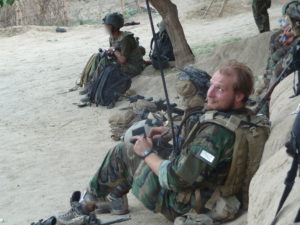Taking a break during a 72 hour operation.
When I sat down to write Part 3 of “I Thought I Was Going to Die” a couple of weeks ago, a couple of pages quickly turned into 20 once again. I decided to break up Part 3 (I know that I said that this was a three part series, but I am going to have break it up into 4 parts). Part 3 talks specifically about the day that I was shot. Next week in Part 4, I will talk more about what I was thinking when I was shot and how it differed from the first time “I Thought I Was Going To Die.” I encourage you to read Part 1 and then Part 2 before you read Part 3.
In northern Afghanistan during the summer time it rarely rains, creating a very dusty environment. No matter how many times you clean your room or equipment, it is perpetually dusty. Most of the time, the dusty conditions are just a nuisance, but sometimes they are dangerous. Landing a helicopter is one of these situations. When we landed on the morning that I was shot, the helicopter rotor blades kicked up dust and created a condition that is called a “brown out.” During a brown out, visibility is limited to a few feet in front of your face and if you are not wearing goggles, you will not be able to see at all. Loading and un-loading a helicopter is a confusing, dangerous and vulnerable time that is made worse due to a brown out.
When the helicopter landed, every member ran off the helicopter and took up a security position. We waited for the helicopter to take off and for the brown out to settle. We had done this hundreds of time and this process was second nature to everyone. My heart sank as soon as the brown out lifted; there was a Bedouin tent 25 meters away. The possibilities of what was in that tent began to run through my head, was there a guy with a machine gun or was it just a Bedouin family? After we searched the tent we continued to move towards the village.
When we planned for a mission, we had a plethora of imagery for the target area. The imagery usually gave us a good idea of the terrain and area that we were going to, however, sometimes the imagery was deceiving. Unfortunately, the imagery deceived me on this mission. When we reached the village and started searching the first set of houses I said to myself, “fuck, this is going to suck” (I try to refrain from cursing, however, in Afghanistan about 50% of my vocabulary consisted of the word fuck or similar variations. I found that this word could be used as an adjective, adverb, verb, noun, pro-noun, modifier etc…;). The valley was about 1 KM wide and 5KM long. There were numerous clusters of houses making up a few villages throughout the valley. Each house in each village needed to be searched. A dry riverbed separated the valley. Lush green “jungles” crisscrossed the riverbed. The banks of the riverbed were steep and the mountains on the sides of the valley were steeper. Not only was this place going to be hellacious to clear, it was also an amazing place for insurgents to fight.
The riverbed naturally divided the valley in half, breaking it into east and west. My platoon was responsible for clearing the western part of the village while another platoon was responsible for clearing the eastern side. One squad of Commandos and Americans landed on the western mountainside to provide cover with machine guns and mortars while another squad landed on the eastern mountainside to provide cover with machine guns and sniper rifles. As soon as we reached the first cluster of houses on the west side, I broke my squad off from the platoon and started clearing the riverbed and area around it. The pace was slow going and it started to become hot as the sun crested over the mountaintops.
About one hour into the mission, the pain in my shoulders, neck and upper back started to set in. I tried to re-arrange my body armor, my assault pack and helmet (over 80 pounds of gear), but it did not help. I was faced with the stark reality that for the next 24 hours (it was only 12 hours for me) I was going to have to wear that heavy uncomfortable body armor, assault pack, and helmet and carry my M-4 rifle. While fighting the pain, exhaustion and frustration, I also had to be tactical and make cogent battlefield decisions. Once all of this set in for me I became very angry and short tempered (the usage of the word fuck increased to about 75% of my vocabulary at this time). Some missions, it took a couple of hours to feel like this, sometimes it happened right when I stepped off the helicopter. However, I noticed that lately it was starting to happen sooner and sooner.
When it started to get hot and the reality of how much this mission was going to suck set in, the Taliban began to engage us. Like usual, it was chaotic. No one knew where the fire was coming from until one of my teammates came over the radio and told us what was going on. His voice reflected a mixture of terror and urgency; he let us know that his squad was ambushed from a tree line to the northwest of him and that they were pinned down from the heavy volume of small arms fire.
After assessing the situation, I wanted to perform a react to contact battle drill. My plan was to have my teammate continue to engage the enemy to the northwest while my squad and I moved from south to north. Once my squad was parallel with my teammate’s squad, they would shift their fire and my squad would start to clear through the tree line and eliminate enemy positions. I relayed my plan to the Commando squad leader and platoon sergeant through my interpreter. For some reason the squad leader and platoon sergeant started to argue with each other. As a trainer and mentor to the Commandos I tried to let them take the lead as much as possible. I always wanted them to take ownership and make as many decisions as possible. However, when other people’s lives were at risk I had no tolerance for bickering and I made it very clear to them that day.
I decided to forgo clearing the houses that separated my squad and I from the enemy positions in the tree lines. We urban cleared (tactically moved through the maze of Afghan houses without entering them) until we reached two other squads that had the same plan as mine. At this juncture we found out over the radio that we had aircraft in-bound and that we were going to drop a bomb on the enemy’s position. At the same time, I also found out that one of Commandos was severely wounded from a gunshot to the neck.
While we waited for the aircraft to drop its payload, myself and other teammates began to secure a small field for the medical evacuation of the Commando. When I first saw the Commando, I could not believe that he was still alive. The Commando and Johnny Mac, the medic that was working on him, were covered in blood. While we waited for the helicopter, Johnny Mac continued to work on the Commando and with great urgency in his voice said, “if we don’t get a fucking helicopter in here now, this guy is gonna die” (There was nothing else that we could do, the helicopter was on the way). I pushed to the out skirts of the village and moved atop a roof to provide security and shot off multiple warning shots to spotters on the mountaintops. (Due to the excellent medical care of Johnny Mac and many others, the Commando survived).
Once the medevac occurred and the bombs dropped, we were ready to start clearing again. I thought that the bombs would silence the Taliban, however, it only seemed to embolden them. Myself and a few other squads stayed on the western side of the valley, while a few squads stayed on the eastern side. The western side was on an upward slope and provided a better vantage point than the lower eastern side. Members of my platoon, my squad and myself would move forward first, clear and then occupy a set of buildings. I would then take a Commando machine gun team to a rooftop so that we could provide covering fire and spot for our element on the eastern side. Once we were in place, the eastern side could move forward. When we were parallel, the western side would move forward and repeat the process.
This process was physically and mentally exhausting. About five hours into the engagement the enemy fire had died down and the Team Sergeant and Captain called for a halt. The Commandos and I strong pointed a compound; I was relieved that we were finally taking a break. While searching the compound, we found large amounts of IED making materials and pre-made IED’s. When I sat down, I could not believe that so much time had passed. I realized that in the past 5 or so hours I had maybe drank 12 ounces of water, ate nothing and had the same wad of Copenhagen in my mouth the entire time (I took my last ever dip of Copenhagen out right before I was shot). I also realized that I was tired, not just exhausted, but sleepy. I ate a handful of nuts, chugged some water, used the well to re-fill my Camelbak, re-checked security and set up a rotation so that everyone could rest. I sat down in the shade and passed out, ten minutes later I was awakened by the familiar sounds of PKM and AK-47 fire.
Our rest was brief and once again we started clearing houses and bounding forward. I did this until I was shot. After I was loaded up on the medical evacuation helicopter, my team did this for another couple of hours (I was shot at the 9/10 hour mark of the engagement). The engagement was 12/13 hours from start to finish. My team stayed for another six hours until they were picked up the next day in the pre-dawn hours.
It was days like this that I trained for in the Special Forces Qualification Course. I used to think that my instructors were crazy sadists that delighted in making myself and others walk around the woods of North Carolina with 65-pound packs for days on end without sleeping and eating. But days like this showed me that there was a method to their madness. If I had quit during training then I would have quit during this mission. I wanted to quit, I wanted to be home sleeping, or on my couch with my wife or any place else but right there, but people depended on me. We were in the Lions Den and the only way out was to keep fighting. It was a day where the virtues of first place and second place were espoused, success and failure was clearly defined, and participation trophies and “Great Effort” ribbons did not matter. This day refined character and revealed courage and served as a defining day in men’s lives.
Like Wounded by War’s Facebook page and receive updates and notifications every time a new article comes out.

